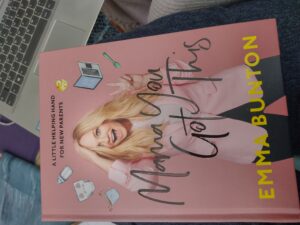In the first few weeks and months of parenthood, new mothers and fathers very often comment on the range of knowledge they were missing, and skills they didn’t have, to cope with this new experience. If they paid for antenatal classes, at least they have someone to blame for the gaping mismatch between expectation and reality; but the majority of new parents do very little formal preparation, and unsurprisingly say the same sort of things.
To misquote Tolstoy, “each new family is new in its own way.” This presents a challenge when it comes to helping a couple to prepare for parenthood. Living in the midst of extended family, as they might have done 100 years earlier, the whims and wiles of the newborn baby would have been somewhat less mysterious; or at least the family elders could have helped to unravel some of those mysteries. New mothers might have found themselves less isolated. New fathers might have had more clearly-defined roles. And there would have been none of this pesky research into attachment and brain development, less pressure to have it all, and not so much of an expectation to be the perfect parent.
“I wish someone had told me that cluster feeding is normal… that formula isn’t evil… what ‘broken sleep’ really means…” they say, or write, with the authority of the first fully enlightened human being to have studied this matter. Emerging from the newborn fug into the crystal clarity of a new mum or dad who is finally getting a bit of sleep, the simmering resentments about the truly unexpected turns in their road, and the vast range of surprises that society simply forgot to mention, become pronouncements upon The Things I Have Learned, From Which You Too Must Benefit.
As an antenatal educator, I am often advised of the many ways in which I failed to prepare people for what it’s really like to have a baby, and find yourself relentlessly on call to a tyrannical but adored bundle of cute, who speaks no language that you know, and for whose health and well-being you are entirely responsible.
And I know I would have mentioned cluster feeding, and can think of any number of reasons why they might not have really taken it on board: were they focused on the impending birth to the extent that this was too abstract to be meaningful? Did they think this would never happen to them? Was it one small forgotten detail, many weeks ago now, lost in the fog? Is it actually possible to convey the real intensity of early breastfeeding, with the language we have at our disposal?
I also know I didn’t say that that formula was evil. In fact I may well have given examples of making a positive decision to use it. I explained about milk supply and responsive parenting and feeding cues, but I don’t believe that formula is evil, so why would I have said it? Is it perhaps that they expected me to say that, and didn’t really listen to what I actually said? Or did someone else say it, and they misremember it as being me?
As for sleep: well, some babies sleep, and some babies don’t sleep, and your interpretation of broken might be different from mine. The challenge is to drill down through platitudes and unrealistic expectations, without frightening the living daylights out of people who can’t predict what’s coming their way. In a society where people with some medical or scientific authority still insist, in the face of the evidence, that babies “should” sleep in a certain way, it’s not surprising that the sporadic and uncontrollable nature of newborn sleep should be hard for parents to manage.
I call for people to carry on being this honest about their experiences as new parents, but not to assume their experience is universal, nor to blame the people offering information and support for the fact that parenthood is not, in every way, as you expected. Join your voice to ours in increasing the support available. Ask the government not to cut funding to essential services such as Children’s Centres and breastfeeding support groups. And don’t be part of the problem by telling other parents-to-be what to do: every new family is new in its own way.
 Mama, you’ve got this is the latest celebrity parenting book, from the pen of Spice Girl Emma Bunton and her team of experts. Emma has her own range of eco-disposable nappies to sell, alongside her advice for the first 12 months of parenthood.
Mama, you’ve got this is the latest celebrity parenting book, from the pen of Spice Girl Emma Bunton and her team of experts. Emma has her own range of eco-disposable nappies to sell, alongside her advice for the first 12 months of parenthood.
